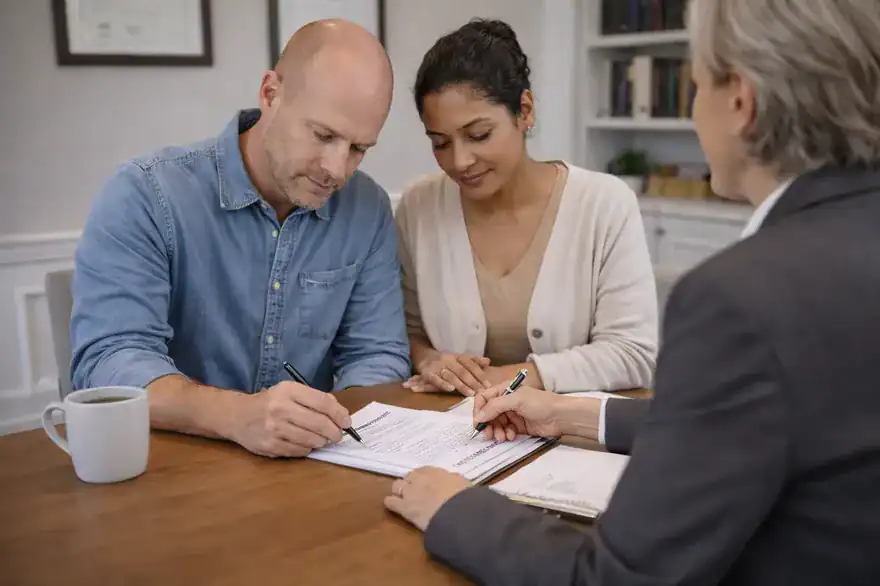
The Common Law Marriage Myth
Many people believe that living together for a number of years makes you a “common law husband or wife” with the same rights as married couples. In England & Wales, this is a myth. Cohabiting partners do not automatically have rights over property unless they are legally recorded as owners or have an agreement in place.
Types of Property Ownership
When an unmarried couple buys a property together, the way the property is legally owned is crucial. Property can be registered as joint tenants or as tenants in common.
As joint tenants, both partners own the whole property equally. This means that if the home is sold, the proceeds are usually divided 50/50, regardless of who paid the deposit or contributed more to the mortgage.
As tenants in common, each partner owns a defined share of the property, which can be equal or unequal. This arrangement is often used where one person contributes a larger deposit, as it allows the legal documents to reflect that contribution.
What Happens if You Separate?
If the relationship ends, how the property is owned will largely determine how the equity is divided. Where the property is held as joint tenants, the starting point is usually equal division. Where it is held as tenants in common, each partner’s recorded share will guide how proceeds are split.
Disputes can arise if the legal paperwork does not reflect the reality of contributions. For example, if one partner paid a much larger deposit but the property was registered as joint tenants, it may be difficult to recover that extra contribution without clear evidence or an agreement. These disputes can be complex, stressful, and costly to resolve.
Protecting Yourselves When Buying Together
Unmarried couples can take simple but important steps to protect themselves when buying a property together. A declaration of trust can record each partner’s contributions and confirm how the equity will be divided if the property is sold. A cohabitation agreement can go further, setting out not just ownership of the home but also how bills, mortgage payments, and other responsibilities will be managed during the relationship.
Making sure the property is registered correctly at the Land Registry and keeping financial records of contributions also provides clarity and avoids uncertainty later on. These steps can give both partners peace of mind and reduce the risk of disputes if the relationship ends.
Why This Matters
For most couples, the home is their most valuable asset. Without clear arrangements, separating can leave one partner financially vulnerable or lead to disagreements that are difficult to resolve. By understanding the law and making arrangements when buying a house together, unmarried couples can protect themselves and plan for the future with confidence.
How Can Fullers Help?
At Fullers Family Law, we understand that finding a solicitor that you feel understands your own specific situation can be a daunting task. So, you can book a free call back with us here.
We have also created a series of fixed-price consultation meetings with a full ‘no questions asked’ money-back guarantee’ promise.
For an initial discussion and a no-obligation quote, get in touch with us today by simply calling us on 01234 371478, filling in the contact form below, or emailing us at enquiries@fullersfamilylaw.com and a member of our team will get back to you.
